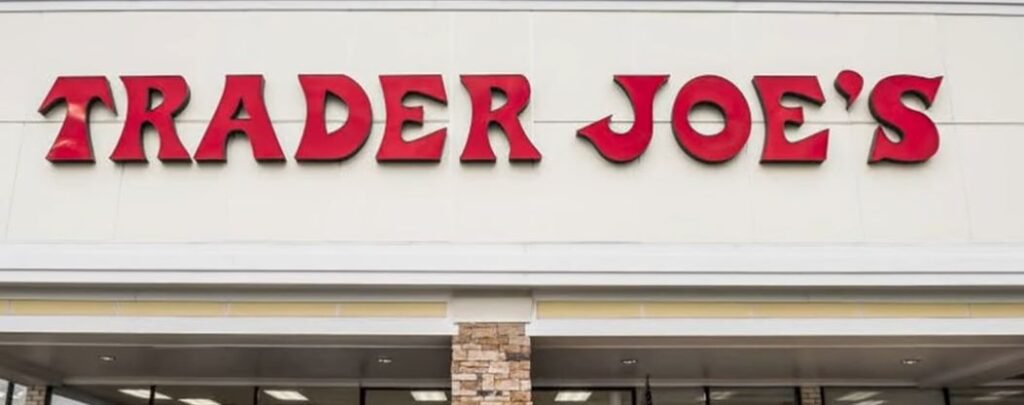
One of the year’s most talked-about brand conflicts is the legal battle between Trader Joe’s and J.M. Smucker Company. What started out as a straightforward competition between peanut butter and jelly has turned into a high-stakes legal dispute that touches on consumer trust, creativity, and the hazy lines separating inspiration and imitation.
Smucker’s case, which was filed in federal court in Ohio, claims that Trader Joe’s engaged in “obvious copycatting” with their Crustless Peanut Butter & Strawberry Jam Sandwiches, which at first look remarkably similar to Smucker’s best-selling Uncrustables. According to the claim, Trader Joe’s design imitates every element of the sandwich, including the round, crimped edges, the color of the package, and even the iconic bite-mark graphic found on Uncrustables boxes.
| Category | Information |
|---|---|
| Plaintiff | J.M. Smucker Company |
| Defendant | Trader Joe’s Company |
| Filed In | U.S. District Court for the Northern District of Ohio |
| Filing Date | October 13, 2025 |
| Allegations | Trademark infringement, unfair competition, and deceptive practices |
| Products Involved | Trader Joe’s Crustless PB&J Sandwiches vs. Smucker’s Uncrustables |
| Smucker’s Argument | Trader Joe’s copied packaging, sandwich design, and visual presentation |
| Trader Joe’s Response | No formal public comment issued |
| Smucker’s Investment | Over $1 billion in developing Uncrustables since 1998 |
The central claim of Smucker’s case is that its sandwich design represents a brand identity rather than merely a practical one. Uncrustables have been a mainstay of American lunchboxes, school cafeterias, and sports sidelines for decades. They are more than just a snack. Smucker claims that by offering a version that is so visually similar that customers could mistake it for the original, Trader Joe’s has muddled that association.
According to the company’s court document, since purchasing the Uncrustables brand from its Minnesota founders in 1998, it has spent more than $1 billion honing it. Smucker contends that this investment produced a product that embodies family trust, convenience, and nostalgia—elements that Trader Joe’s purportedly used to promote its own version.
This case, according to trademark experts, is especially inventive in establishing the extent to which visual identity can be used in food branding. While Smucker has a strong case thanks to its registered trademarks, Trader Joe’s might argue that the circular form and crimped border are utilitarian rather than decorative—features that cannot be monopolized, said attorney Michael Kelber of Neal Gerber Eisenberg.
An incredibly obvious tendency in the supermarket industry is reflected in the larger discussion that has emerged from this debate. The conflict between brand uniqueness and copying has gotten more intense as private-label items have grown in popularity. Customers may not always be aware of how closely Trader Joe’s products resemble national names, since they are frequently lured to the store for its reasonably priced yet upscale-feeling alternatives.
According to industry analysts, private-label sales surpassed name-brand products in growth, reaching $271 billion in 2024. This is a significant obstacle for businesses such as Smucker. They have to protect not only their recipes but also the way their products feel and look, which are aspects that evoke strong feelings in customers.
Smucker’s main grievance is straightforward: Trader Joe’s has unfairly profited off Uncrustables’ well-earned reputation. The lawsuit also references internet comments from perplexed consumers who thought Smucker was the private label manufacturer of Trader Joe’s sandwiches. That confusion is evidence of trademark infringement in Smucker’s eyes. Fans of Trader Joe’s believe it to be a coincidental event.
The circumstance brings to mind other well-known brand disputes. Due to store-brand cookies that looked like Oreos and Chips Ahoy, Mondelez International filed a lawsuit against Aldi earlier this year. These disputes demonstrate how billion-dollar companies can turn packaging, color schemes, and even the “bite mark” on a product’s image into battlefields.
The charge of mimicry seems strangely out of character for Trader Joe’s, which is well-known for its offbeat humor and simple packaging. The supermarket chain’s name has been established by its exceptionally inventive private-label goods, many of which reimagine rather than simply replicate classic things. Smucker, however, maintains that the boundary has been crossed in this case.
According to a Smucker representative, the company’s primary goal is “to protect the distinctive design that represents Uncrustables’ quality and prevent confusion caused by imitation.” The brand considers its design to be an intellectual work of art, a mark of authenticity that is impossible to imitate without repercussions.
Nonetheless, some legal experts predict that the matter will be settled rather than go to trial. Due to the high cost of trademark cases, both businesses may want to steer clear of drawn-out legal proceedings that could cause negative publicity. One legal commentator claimed that Smucker’s brand would be strengthened if it prevailed. “Trader Joe’s becomes a creative folk hero if it battles and prevails. In any case, both brands continue to be discussed by the public.
Deeper concerns of consumer ownership and perception are also brought up by this case. Is it possible to actually trademark a basic sandwich design? And where do imitation and inspiration diverge? These inquiries get right to the heart of contemporary branding, particularly in a time when aesthetics are just as emotionally significant as taste or quality.
It’s interesting that the case comes at a time when nostalgia marketing is booming. In order to appeal to adults who yearn for simplicity in the midst of contemporary turbulence, Smucker’s and Trader Joe’s have both capitalized on comfort foods from childhood. This legal dispute between two well-known American brands over who gets to define comfort feels remarkably significant in that regard.
There is still disagreement among the public as the lawsuit moves forward. Some social media users make fun of the controversy by saying that “Smucker can’t own the idea of a crustless sandwich,” while others support the business’s right to defend its creation. “If you spend $1 billion making something famous, you deserve to protect it,” a Reddit member wrote.
